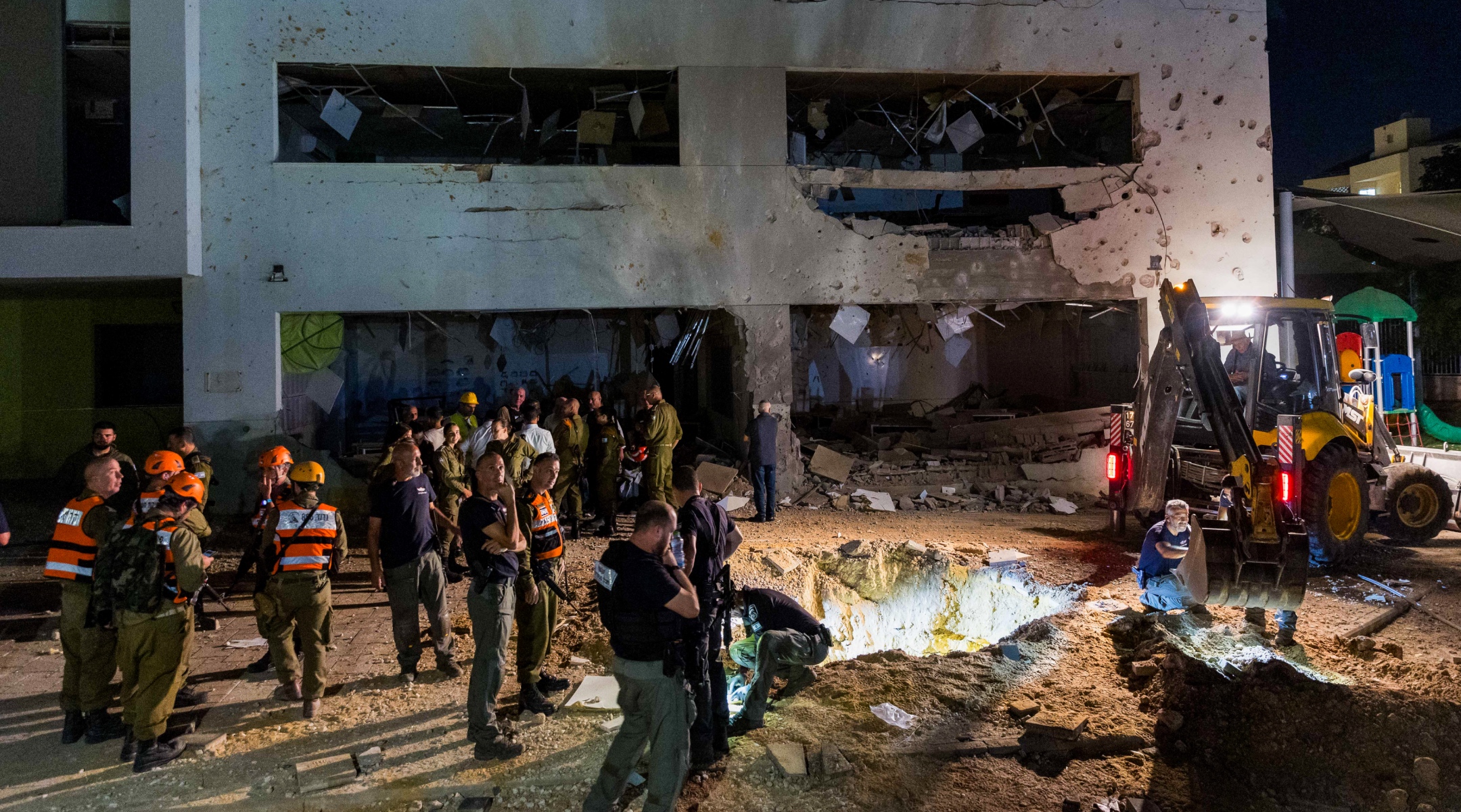American troops will be stationed in Israel for the first time since Oct. 7, 2023, as the country prepares for ongoing conflict with Iran.
The announcement that U.S. personnel would arrive came on the same day that a Hezbollah drone strike on a military base in Israel killed four soldiers and injured nearly 60.
Sunday’s developments signal that the war that began more than a year ago with Hamas’ invasion of Israel may expand across the region. Since last Oct. 7, the U.S. has moved aircraft carriers to the region, devoted billions of dollars to military aid for Israel and taken other steps to demonstrate its support, but has yet to station troops on the ground in Israel as it fights a multi-front conflict.
The group of 100 U.S. troops will come to Israel to operate the Terminal High Altitude Area Defense, or THAAD, an advanced missile defense system that will be stationed in Israel to repel an Iranian attack.
“This action underscores the United States’ ironclad commitment to the defense of Israel, and to defend Americans in Israel, from any further ballistic missile attacks by Iran,” Maj. Gen. Pat Ryder, the Pentagon press secretary, said in a statement on Sunday. “It is part of the broader adjustments the U.S. military has made in recent months, to support the defense of Israel and protect Americans from attacks by Iran and Iranian-aligned militias.”
Israel is expected to strike Iran in the near future in response to a barrage of 180 ballistic missiles Iran fired at the country at the beginning of the month, the second time this year that Iran attacked Israel directly. After the first Iranian barrage, in April, Israel carried out a small-scale response strike, but may be preparing for a wider retaliation this time, as the U.S. is signaling that it has a green light to respond.
While one person was killed by the Iranian barrage, it caused relatively little damage in Israel, but the THAAD system could help further protect Israeli population centers if Iran strikes again. The U.S. sent troops to Israel under similar circumstances in 1991, during the Gulf War, to operate missile defense systems protecting Israel from an Iraqi strike.
The Iran-Israel conflict is tied to Israel’s war against Hezbollah, the Lebanese terror group and Iranian proxy. Hezbollah began firing missiles at Israel shortly after the’ Oct. 7 attack last year, and the two sides have been exchanging fire since.
That conflict escalated sharply in recent weeks, as Israel killed Hezbollah’s leader, Hassan Nasrallah, and several other senior commanders of the group, and depleted much of its missile capabilities. Israel has also sent troops into Lebanon to distance Hezbollah from the border and ensure that tens of thousands of Israeli citizens who have evacuated the border area can return home.
Iran’s strike on Oct. 1 came in response to Nasrallah’s killing, and Hezbollah has ramped up its own strikes across Israel. The drone strike that killed four soldiers on Sunday near the city of Binyamina reportedly hit a mess hall where the troops were eating.
More than 2,000 people in Lebanon have been killed in the conflict — both fighters and civilians — while dozens of soldiers and civilians have been killed in Israel. Israeli fire has also injured United Nations peacekeeping troops, whom Israel called on to evacuate on Sunday, saying Hamas fighters were embedded near them.
“Mr. Secretary General, get the UNIFIL forces out of harm’s way,” Israeli Prime Minister Benjamin Netanyahu said in remarks addressed to UN leader Antonio Guterres, using an acronym for the peacekeeping troops. “It should be done right now, immediately.”
In a statement, the United Nations placed blame on Israel for the injuries, saying, “We remind the IDF and all actors of their obligations to ensure the safety and security of UN personnel and property and to respect the inviolability of UN premises at all times.”
JTA has documented Jewish history in real-time for over a century. Keep our journalism strong by joining us in supporting independent, award-winning reporting.






